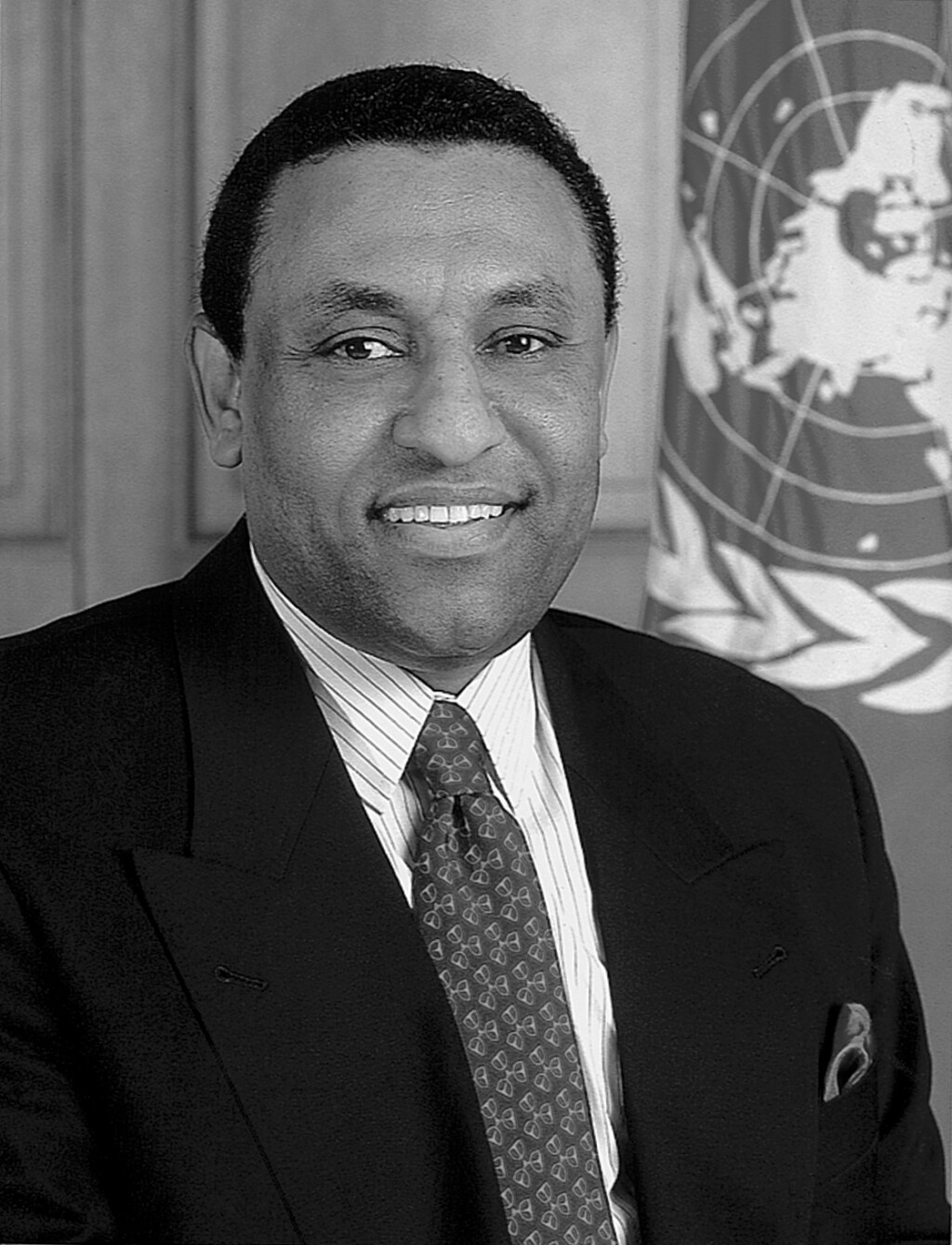AU’s support for new Sudan PM sparks uproar among political and armed groups

Dr Kamil El Tayeb Idris, Sudan’s newly appointed civilian Prime Minister (Photo: WIPO.int)
The African Union’s (AU) cautious endorsement of Dr Kamil El Tayeb Idris as Sudan’s newly appointed civilian Prime Minister has been met with mixed reactions, drawing both applause and condemnation across Sudan’s political and military spectrum.
In a statement by AU Commission Chairperson Mahamoud Ali Youssouf on Tuesday, he praised the appointment as a potential step toward restoring democratic governance. Hailing Dr Idris’s selection as a “a step toward inclusive governance,” Youssouf reaffirmed the Union’s commitment to Sudan’s unity, sovereignty and stability.
He endorsed the AU’s “commitment to the unity, sovereignty and stability of Sudan, and to the pursuit of a durable political solution that secures peace, development and democratic governance for all Sudanese”, adding that he hoped the move would help restore constitutional order.
Youssouf’s remarks have triggered a firestorm of criticism. His previous comments during a meeting with Sovereignty Council member Lt Gen Ibrahim Jaber, where he lauded the Sudanese Armed Forces (SAF) for regaining control in parts of the country, were seen by some as aligning too closely with the military, undermining the AU’s official neutrality.
The paramilitary Rapid Support Forces (RSF), and the controversial Sudan Founding Alliance swiftly condemned Youssouf’s statements. The Alliance accused him of “clear bias towards the army” and violating the AU’s principles, particularly in light of Sudan’s suspension from the bloc following the 2021 military coup.
Omar El Degeir, chair of the Sudanese Congress Party, told Al Jazeera, the AU chairperson’s recent statements were “contradictory to the Union’s declared stance” and warned that no military solution would resolve Sudan’s deepening crisis.
Polarised reactions
The appointment of Dr Idris, a former career diplomat and intellectual who ran as an independent candidate in Sudan’s 2010 presidential election against longtime ruler Omar al Bashir, has divided opinion across Sudan’s political and military landscape.
The Justice and Equality Movement (JEM), headed by Jibril Ibrahim, welcomed the decision. Mutasim Saleh, JEM’s Secretary of Political Affairs, said it marked the end of an “executive vacuum” and a critical step towards democratic civilian governance.
Saleh noted that the prolonged lack of leadership had hampered humanitarian efforts and Sudan’s international engagement.
Ahmed Mohamed Haroun, former head of the now-dissolved National Congress Party and wanted by the International Criminal Court, backed Idris, calling him an “independent national expert” suited for Sudan’s challenges.
Noureddine Babiker, spokesman for the Sudanese Congress Party, was more scathing. In an interview with Radio Dabanga, he called the appointment “a desperate attempt to beautify the face of the Port Sudan government” and warned that the decision could deepen internal divisions rather than bridge them. “It is a single-handed decision that lacks popular and institutional legitimacy,” he said.
Babiker insisted that only negotiations to end the war, followed by a consensual political process, could put Sudan back on the democratic path.
International reactions
The United Nations and Intergovernmental Authority on Development (IGAD) cautiously welcomed the appointment.
UN Secretary-General António Guterres, in a statement delivered by his spokesperson Stéphane Dujarric on Tuesday, said Idris’s appointment should serve as “a first step” towards forming a broad-based technocratic government and forging peace.
In a statement by IGAD’s Executive Secretary Workneh Gebeyehu on Wednesday, he called for all Sudanese parties to engage in national consultations to restore constitutional rule and establish peace.
He reiterated IGAD’s call for an immediate ceasefire, saying that only a cessation of hostilities would “ending civilian suffering, enabling humanitarian access, and creating an environment conducive to dialogue.”
AU criticism
Despite the African Union’s backing, the bloc came under criticism from El Basha Tebeig, adviser to RSF Commander Mohamed ‘Hemedti’ Dagalo. In a post on X (formerly Twitter) on Tuesday, Tebeig accused the AU of using his position to favour the SAF. “He is working to steer the positions of African countries in favour of one of the warring parties, to whom he owes loyalty and support,” he warned.
Some voices went further. Saleh Mahmoud of the Sudanese Communist Party denounced the AU’s recognition of Idris as a breach of its charter, insisting that the appointment came from a “coup government with no popular mandate.”
Professor Siddig Tawir, leading member of the Socialist Arab Ba’ath Party echoed that view, describing the appointment as “an unconstitutional move” driven by “external interests keen on sustaining dictatorship to exploit Sudan’s resources.”
AU endorsement
The de facto Sudanese government, however, responded positively. Minister of Culture and Information Khaled Aleiser, expressed appreciation for Youssouf’s statement and urged the AU to lift Sudan’s suspension, hoping it would pave the way for the country’s return to the continental stage.
The Democratic Unionist Party called for swift formation of the new civilian government and backed Idris as a non-partisan figure capable of navigating Sudan through its transitional period.
Lord Collins of Highbury, Parliamentary Under Secretary of State (Africa), weighed in during a session in the House of Lords on Tuesday.
He underscored the significance of the recent Sudan conference hosted by the British government, noting the vital role of the AU as co-chair. He said the UK government was now focused on coordinating existing initiatives and increasing international engagement.
“The important thing is to avoid a multiplicity of actions and contacts,” he said. “You could then end up with the warring parties choosing which one to go for.”
He added that the UK would join the Sudan Consultative Group meeting in Brussels at the end of June, as part of efforts to forge a unified path towards peace.











 and then
and then